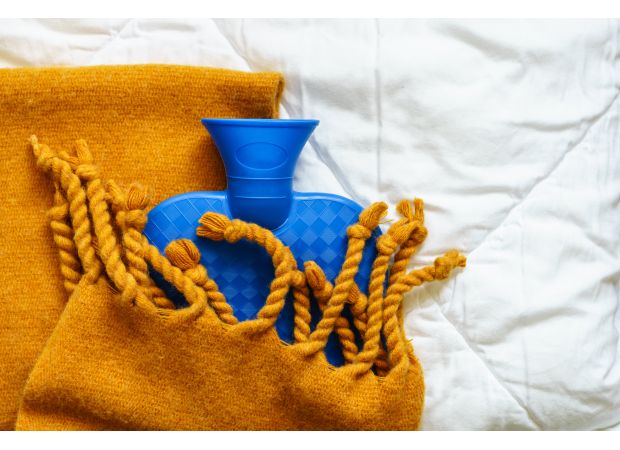Is it unhealthy and do hot water bottles expire?
Is a hot water bottle a helpful companion or a harmful enemy?

Hot water bottles are a beloved comfort for many people, providing relief for aches and pains and keeping beds warm. However, as the cost of living continues to rise, people are finding ways to save on their heating bills, including turning to hot water bottles for warmth. While they may seem like a harmless solution, there are potential dangers that come with using hot water bottles regularly. In fact, there have been cases where people have suffered severe burns from expired hot water bottles. So, how safe are these trusty companions? Let's take a closer look at some potential hazards.
One of the concerns with hot water bottles is their direct contact with the skin. Some medical professionals advise against using them too closely, as prolonged exposure can lead to skin rashes, ruptures, and burns. Dr. Amir Khan, a GP who appeared on ITV's Lorraine, warned against keeping the bottle in direct contact with the skin for too long, stating that he has seen many cases of a rash called erythema ab igne, also known as the hot water bottle rash. This is a type of skin rash that is caused by repeated exposure to heat or infrared radiation and can be a sign of chronic inflammation or other health issues.
Another question that often arises is whether hot water bottles have expiration dates. The answer is yes, they do. While they may seem like a simple household item, hot water bottles can actually be dangerous if used past their expiration date. There have been instances where they have burst and caused severe burns. According to consumer expert Alice Beer, hot water bottles are only meant to last up to three years from the time of manufacture. To determine the expiration date, you can check the daisy wheel date on the inside of the bottle. The number in the middle represents the year, while the dots around the outside indicate the month.
If your hot water bottle is missing this daisy wheel date, it's best to replace it two to three years after you purchased it. The rubber can deteriorate over time, making it more likely to leak and cause burns. So, how can you use a hot water bottle safely? The NHS in Wales recommends filling the bottle with hot water (not boiling) and making sure the stopper is securely screwed on. It's also important to only fill the bottle three-quarters full and wrap it in a towel to prevent direct contact with the skin. It's also best to avoid taking the bottle to bed and to regularly check for signs of wear and tear. And before sealing the bottle, make sure to expel all air above the water level to prevent injury from hot steam.
Hot water bottles are a useful and comforting tool, but it's important to use them safely and responsibly. If you have a story to share about hot water bottles, we'd love to hear from you. Feel free to email us and share your experience. Stay warm and stay safe this winter!
1 Views






